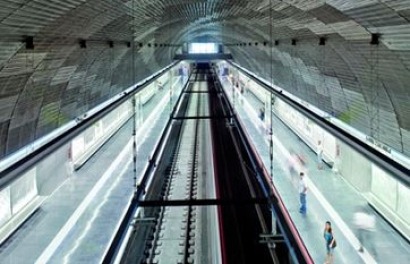
The project is being undertaken with the Brazilian engineering firm Cetenco Engenharia. It is the largest public works project ever undertaken by the state of Ceará and is being built to improve urban mobility in Brazil's fifth-largest city.
Under the contract, the consortium will build a 12.4km subway with twelve stations that is anticipated to carry 400,000 people a day when completed.
Acciona 's renewable energy and water services divisions have long been active in Brazil through affiliates Acciona Windpower and Acciona Agua. Acciona Windpower is building a wind turbine assembly plant in Bahía and has signed supply contracts with a number of Brazilian wind farm developers.
Through its infrastructure division Acciona Infraestructuras, the company is also helping to build Brazil's new infrastructure with four key projects: the Rodoanel ringroad in São Paulo, the breakwaters of the Porto do Açú, the largest private port project in Latin America, which is under construction in the state of Rio de Janeiro, the BR393 highway, also in the state of Rio de Janeiro, and the Linha Leste metro line in Fortaleza.
As part of the latest contract, the consortium will also assemble four tunnel boring machines, nicknamed "tatuzões" (giant armadillos) - that have been acquired by the government of Ceará for the execution of the project.
Fortaleza, the capital of Ceará, has a population of 3.6 million and is an important tourist destination in the northeast of Brazil. The city's new metro line forms part of the Federal Government's plan to improve urban mobility. As a result, Fortaleza's new metro line will be partly financed with federal government funds.
Brazil is accelerating investment in infrastructure as it prepares to host the 2014 World Cup and the 2016 Olympic Games.
The federal government's ambitious plans call for a doubling of the country's road and rail networks, better public transport networks for Brazil's largest cities, as well as an expansion of capacity in ports and airports.
For additional information:

